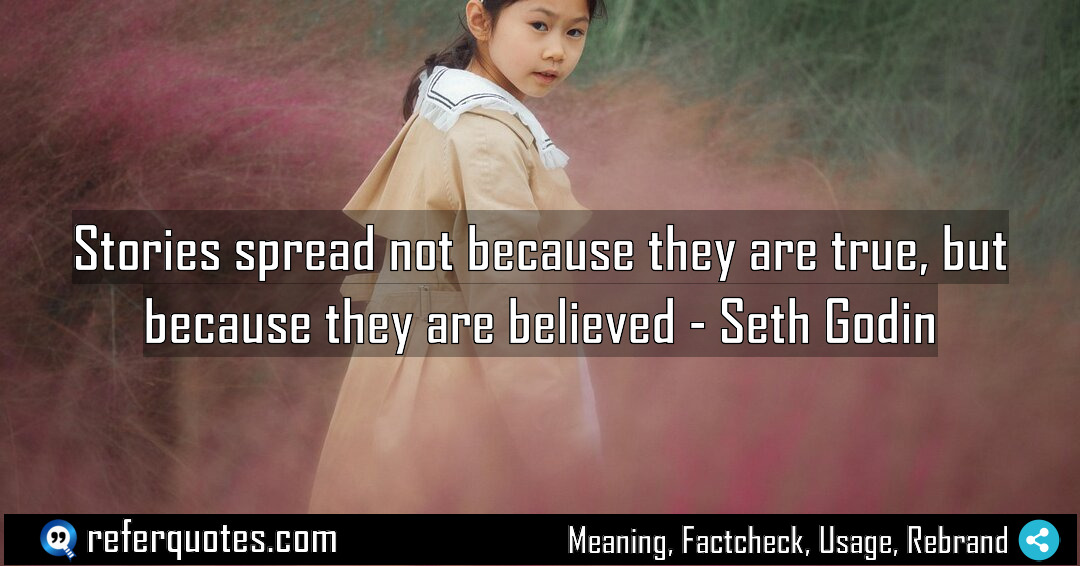Stories spread not because they are true… they spread because they resonate. It’s a game-changer for how we think about marketing and communication. Truth is secondary to belief.
Share Image Quote:Table of Contents
Meaning
The core idea is that the “truth” of a story is less important for its spread than its ability to connect with and be believed by an audience. It’s about emotional resonance over factual accuracy.
Explanation
Let me break this down for you. I’ve seen this play out a thousand times in campaigns. You can have all the data, all the facts in the world, but if your story doesn’t click with someone’s existing worldview, it just… evaporates. It doesn’t stick.
People don’t buy products; they buy better versions of themselves. They buy the story that the product tells. A Patagonia jacket isn’t just insulation; it’s a story about adventure and environmentalism. An iPhone isn’t just a phone; it’s a story about creativity and simplicity. The power isn’t in the factual specs—it’s in the authentic story that makes people believe.
And that’s the key. Authenticity. Not truth. The story has to feel real and consistent to the person hearing it.
Quote Summary
| Context | Attributes |
|---|---|
| Original Language | English (4111) |
| Category | Wisdom (465) |
| Topics | belief (114), influence (84), truth (94) |
| Literary Style | minimalist (508) |
| Emotion / Mood | reflective (425) |
| Overall Quote Score | 80 (269) |
Origin & Factcheck
This comes straight from Seth Godin’s 2005 book, All Marketers Are Liars, which he later subtitled The Power of Telling Authentic Stories in a Low-Trust World. It’s a US publication. Sometimes people misattribute this idea to other thinkers, but the specific phrasing is uniquely Godin’s.
Attribution Summary
| Context | Attributes |
|---|---|
| Author | Seth Godin (100) |
| Source Type | Book (4668) |
| Source/Book Name | All Marketers Are Liars: The Power of Telling Authentic Stories in a Low-Trust World (57) |
| Origin Timeperiod | 21st Century (1995) |
| Original Language | English (4111) |
| Authenticity | Verified (4668) |
Author Bio
Seth Godin writes and teaches about marketing, leadership, and creative work. After earning an MBA from Stanford, he founded Yoyodyne, sold it to Yahoo!, and later launched ventures like Squidoo and the altMBA. He has authored bestsellers such as Permission Marketing, Purple Cow, Tribes, Linchpin, and This Is Marketing. He posts daily at seths.blog and speaks globally about making work that matters. If you’re starting with the Seth Godin book list, expect insights on trust, storytelling, and shipping creative projects that change culture.
| Official Website | Facebook | X
Where is this quotation located?
| Quotation | Stories spread not because they are true, but because they are believed |
| Book Details | Publication Year/Date: 2005; ISBN/Unique Identifier: 9781591841009; Last edition: Portfolio Penguin 2012; Number of pages: 240. |
| Where is it? | Chapter 12: Spreadable Stories, page 120, 2012 edition |
